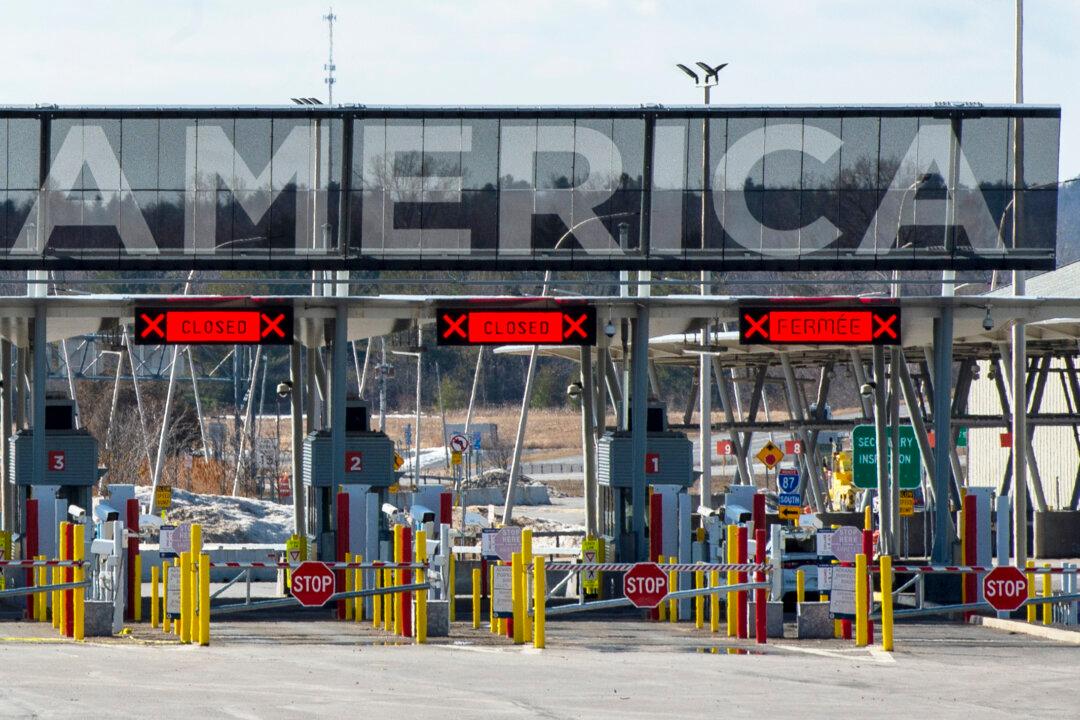The United States and Canada have reached a deal to extend the border closure between the two countries for another 30 days, said Canadian Prime Minister Justin Trudeau.
The U.S.-Canada border, which at 5,500 miles is the world’s longest, was shut on March 21 to all non-essential traffic. The agreement between the two countries to close the border amid the pandemic was due to expire this week.





